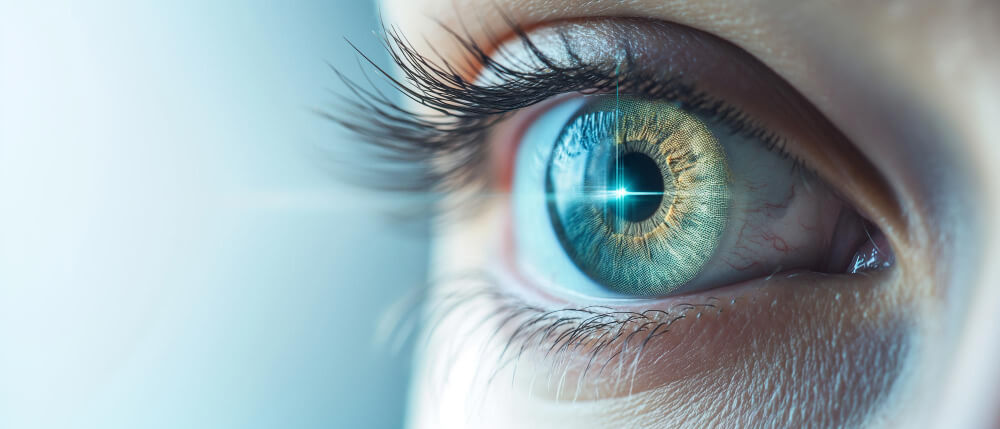Retina vein occlusion (RVO)

Retinal vein occlusion (RVO) is a blockage in a small blood vessel that carries blood away from your retina. Symptoms include blurry vision or vision loss in one eye, which may develop suddenly. RVO can lead to serious complications like swelling or bleeding in your eye. Without treatment, these issues can lead to vision loss.
Types of Retina Vein Occlusions
There are two types of RVO:
- Central retinal vein occlusion (CRVO), or blockage of the main retinal vein.
- Branch retinal vein occlusion (BRVO), or blockage of one of the smaller branch veins. This type is more common.
Symptoms and Causes
Symptoms of retinal vein occlusion typically affect one eye and include:
- Blurry vision or vision loss: This may start suddenly or develop gradually over a period of hours or days.
- Floaters: These are dark spots or lines in your field of vision.
- Pain or pressure in your eye: This is typically in more severe cases.
Risk factors for retinal vein occlusion
Being over age 40 is a major risk factor. RVO usually affects people in their 50s or 60s. However, this condition can also affect people younger than age 40.
Having certain medical conditions can also raise your risk. These include:
- Atherosclerosis
- Diabetes
- Glaucoma
- High blood pressure
Prior history of retinal vein occlusion in one eye raises your risk of developing the condition in your other eye.
Complications of retinal vein occlusion
Retinal vein occlusion can lead to complications such as:
- Cystoid macular edema: This is swelling in the center of your retina. It can cause blurry vision or loss of vision.
- Neovascularization of the eye: Abnormal blood vessels can form in different parts of your eye, typically your iris (rubeosis iridis). This happens in about 1 in 4 people with RVO. Abnormal blood vessels less commonly form in your retina.
- Bleeding in your eye (vitreous hemorrhage): This is when blood leaks into your vitreous humor, the gel-like substance that fills your eyeball. It results from the formation of abnormal blood vessels, which are prone to leaking.
- Neovascular glaucoma: Abnormal blood vessels in your eye can cause pain and a dangerous increase in pressure inside your eye.
Management
Techniques
There’s currently no way to reverse or cure the blockage in your retinal vein. But eye care specialists can prevent or treat the complications of retinal vein occlusion with:
- Anti-VEGF injections (link)
- Steroid injections (link)
- Panretinal photocoagulation
- Vitrectomy surgery (link)
- Medications to manage risk factors.

